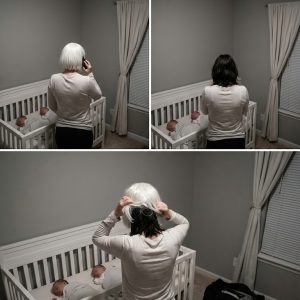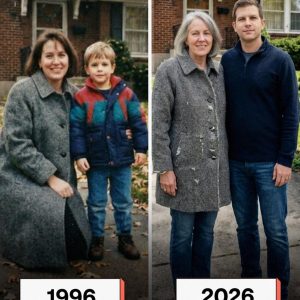I thought I’d grown numb to my sister Chloe’s selfishness—until she blamed my seven-year-old son Jasper for ruining her sofa. At 29, I’d spent my life managing her drama, often excusing it as a response to our shared grief. After our mother died young, our father spoiled Chloe, leaving me with the responsibility.
But this time, she crossed a line. Jasper calmly insisted he hadn’t damaged the couch—one we’d bought together for $50—and I believed him. Later, Chloe’s boyfriend, Max, admitted the truth: the sofa had been ruined at a party, and Chloe lied to protect her image. When I confronted her, she deflected blame as usual. That night, I made the hardest decision—I cut her off. I blocked her, warned Max, and chose peace for Jasper and myself.
Life moved on. Max left her, and soon after, our father passed away. At the funeral, Chloe looked hollow and regretful. I stayed silent, focusing on my son and building a stable life.
Years passed. Then one night, Chloe showed up at my door—not with excuses, but with quiet resolve. To my surprise, she followed through. She got a job, respected boundaries, and built a slow, steady relationship with Jasper based on trust.
Eventually, I saw a different woman. When she became a mother, she led with tenderness and accountability. She owned her mistakes and changed for the better.
Forgiveness didn’t erase the past—but it honored her growth. And for me, that was enough.




